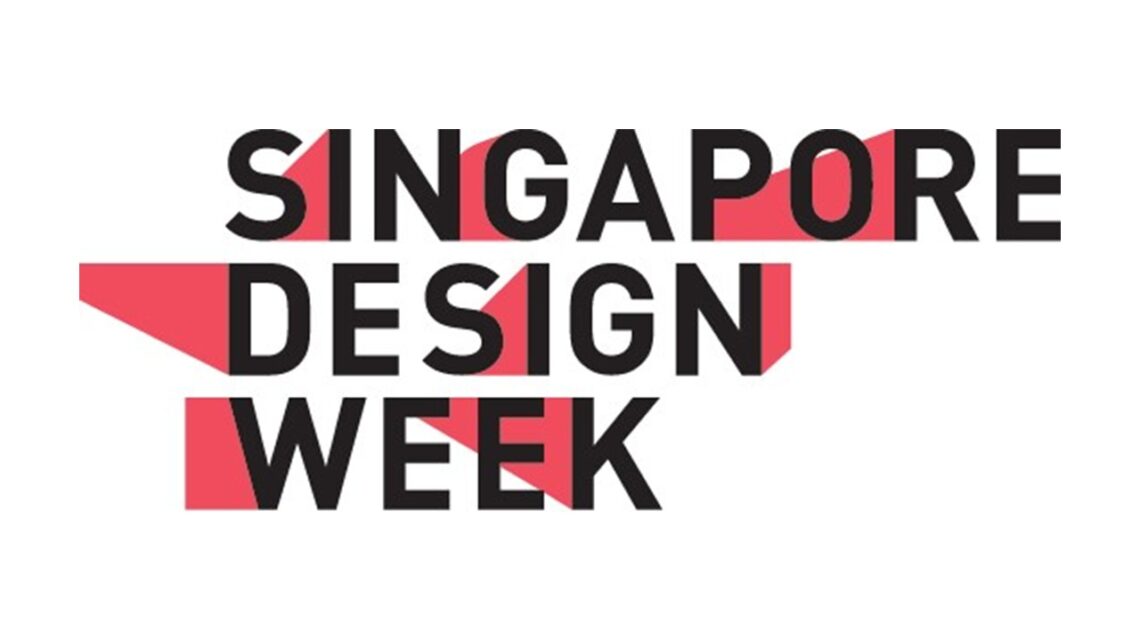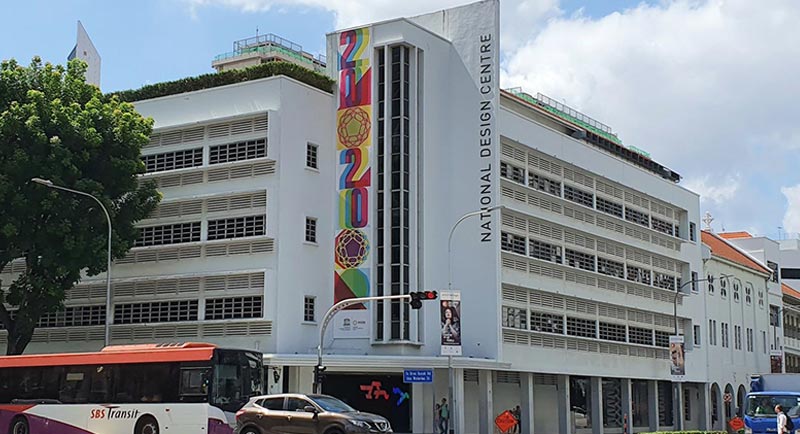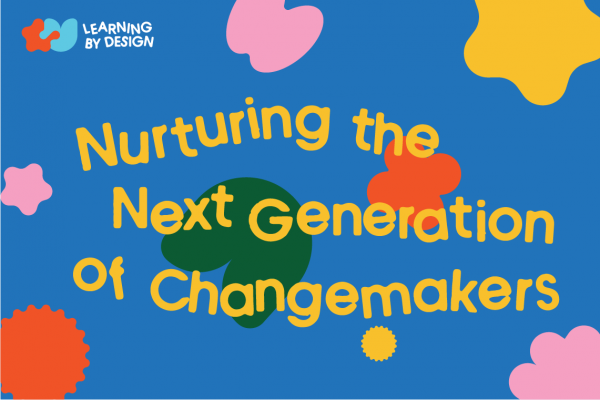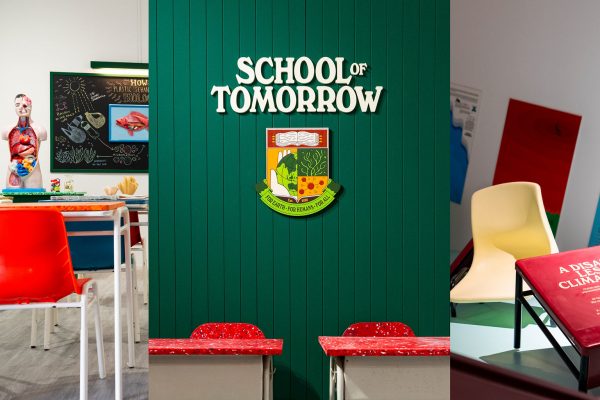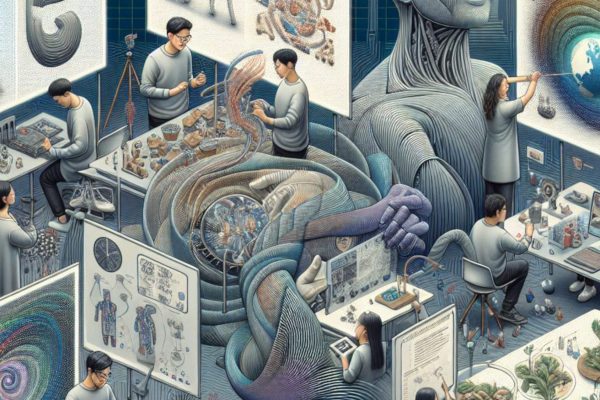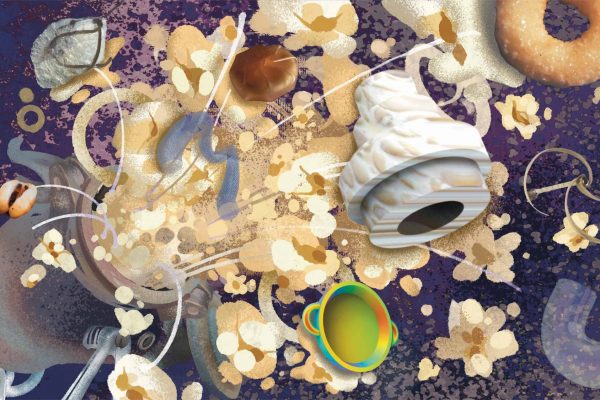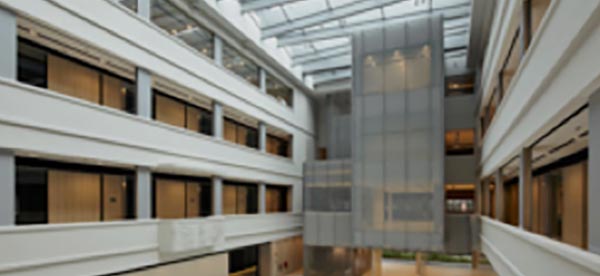Why fix a process that isn’t broken? What if innovating could solve an adjacent problem and add value? Oh Chu Xian, the young CEO of deep-tech startup Magorium, has found creative ways to deal with plastic waste. She’s done so in the most unlikely of contexts: road construction.
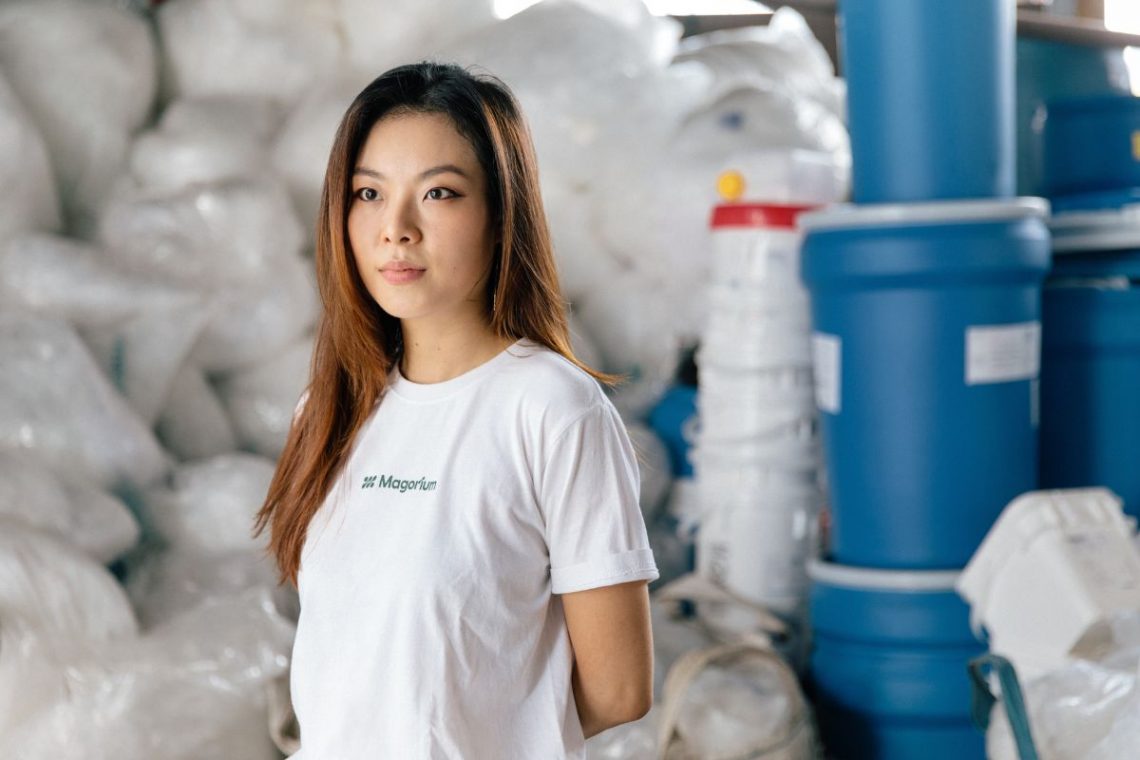
Article by Narelle Yabuka.
On first impression, Magorium seems a fanciful name for a company that makes roads. It came from a movie, Mr Magorium’s Wonder Emporium, in which a toy store springs to life in the eyes of those who believe in its magic. It makes more sense once you learn that the roads in question contain contaminated plastic waste that is otherwise unrecyclable. The plastic is processed into a new bitumen-like material named (more straightforwardly) NEWBitumen.
“I thought the name Magorium was apt because so few people believed it would be plausible to successfully introduce a new road construction material,” says Magorium’s CEO, Oh Chu Xian. She is now able to proudly assert that her deep-tech startup has developed a viable alternative to traditional bitumen and diverted 100 tonnes of Singapore’s plastic waste from incineration.
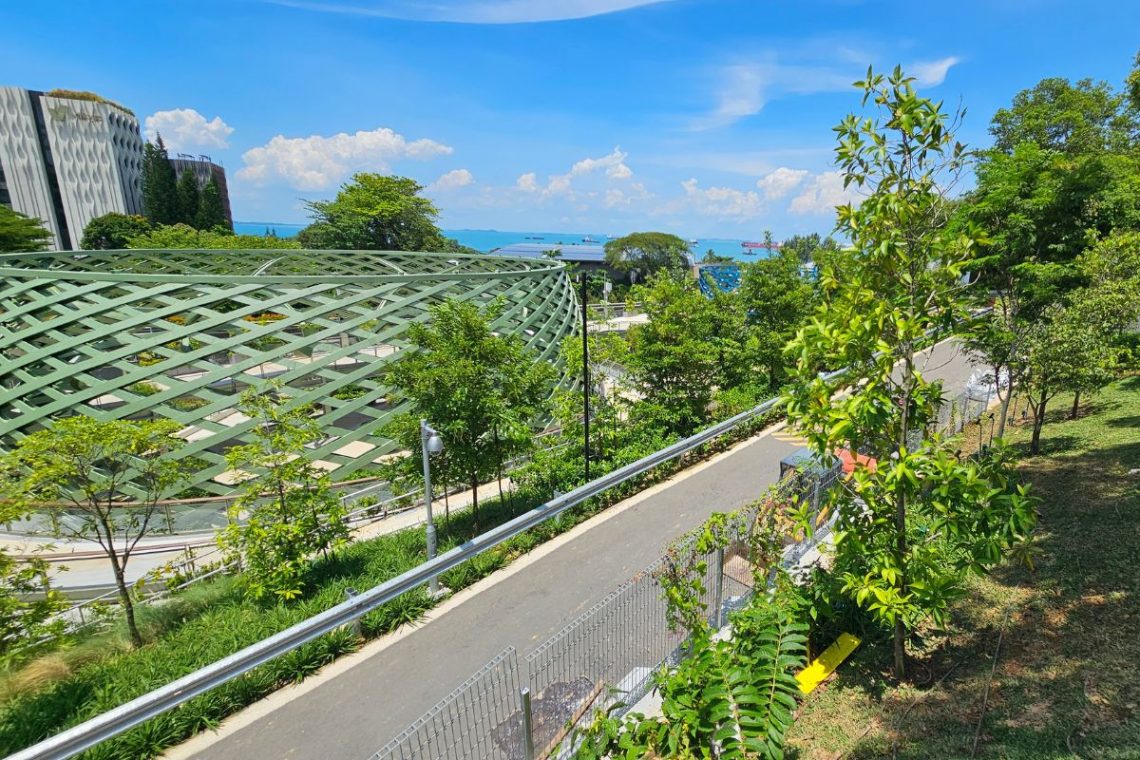
Every step of the way, Oh has harnessed creative thinking as a fuel for going against the grain and evolving a post-plastic material innovation into a viable business model. “I’ve had to be creative almost every single day of being a startup founder because everything is new,” she reflects of her journey.
But more than that, she has discovered the value of creatively rethinking entrenched processes – going so far as to collaboratively design plastic waste recovery systems with her partners.
As a result, without even realising it, you may have strolled or driven down a stretch of road – on Sentosa perhaps – made with your unrinsed shampoo bottles. Who’d have thought that was possible?

‘Creativity’ and ‘startup’ are so interlinked. Creativity is essential to your everyday problem solving. Using creativity is not something you can choose to do when you’re in a startup; you just do it.
— Oh Chu Xian
Innovating to drive down waste
Oh founded Magorium as a spin-off from her family’s traditional road construction business, which was established by her grandfather. Bitumen road construction hasn’t changed substantially for centuries. “There has been very little innovation,” says Oh. She continues, “There are new materials like green concrete for buildings and there’s been a lot of development in prefabrication, but road construction is like the little neglected child of the built environment sector.”
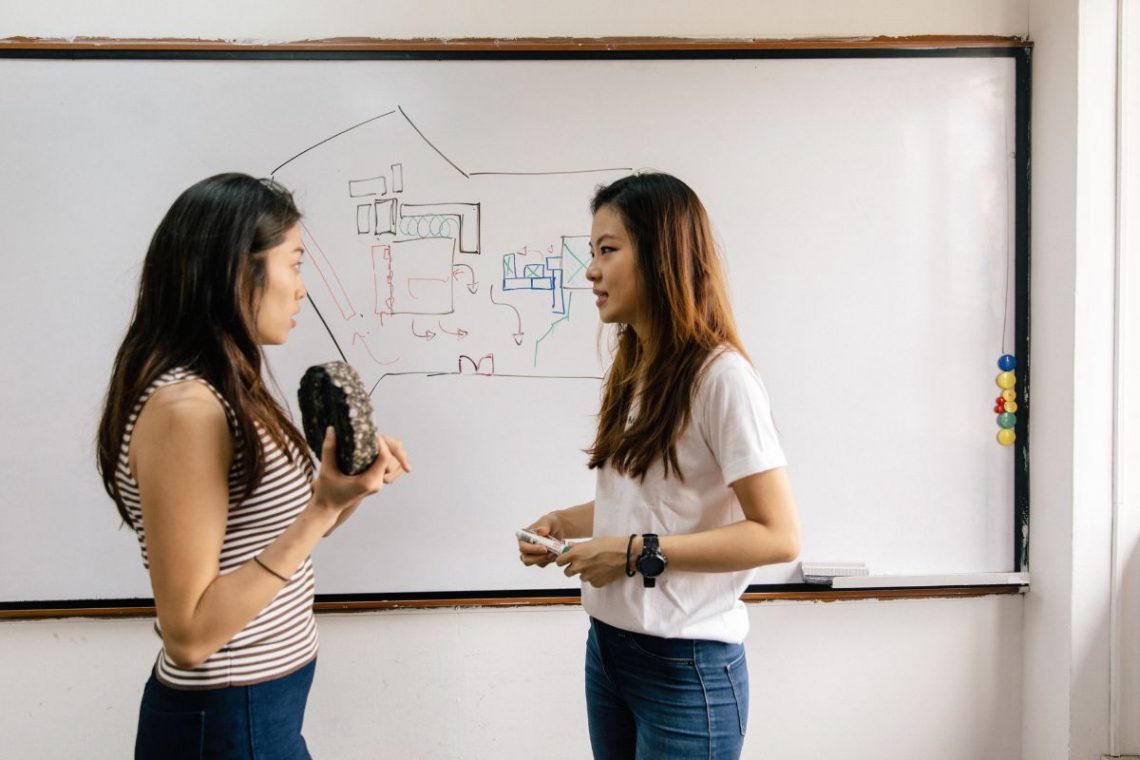
About a decade ago, jolted by increases in the price of crude oil (a key ingredient of bitumen), Oh’s father began looking for alternative materials. One of them was plastic waste. “It showed the most potential because plastic is also derived from crude oil,” says Oh.
“For every square metre of traditional bitumen road that’s paved, there’s a need to mine 300 kilogrammes of materials from the earth. I think that’s something people take for granted,” she says. “Roads are vital pieces of infrastructure, even though it can be environmentally harmful to build them,” she adds. After all, without them, accessing basic services and resources would be arduous – a problem she has observed firsthand in rural villages around the region that she had visited.
The National Environment Agency reports that Singapore produced 1,001 tonnes of plastic waste in 2022, of which just 57 tonnes were recycled. This equates to a recycling rate of just 6%. The small number of plastic recyclers in Singapore and increasingly stringent rules from countries that import plastic waste contribute to the low rate.
The difficulty is that plastic waste must be cleaned and carefully separated into different plastic types (of which there are many) for recycling to be viable. Contamination – from food scraps or an errant PET bottle in a bag of HDPE – means the whole batch would need to be scrapped.
China’s 2017 ban on the importation of the rest of the world’s rubbish – including plastic waste – provided the final seed of inspiration for Oh to establish Magorium in 2019.

We are using any plastic that Singapore currently does not have a solution for, other than incineration.
– Oh Chu Xian
‘Plastic roads’ – how did we get here?
The startup was built on a thermal conversion process called pyrolysis, with which it’s possible to depolymerise plastic – that is, to alter its molecular composition by breaking up its long polymer chains and, in so doing, create a new product. Oh explains, “It’s like reverse-engineering plastic back into a more basic form of material.”
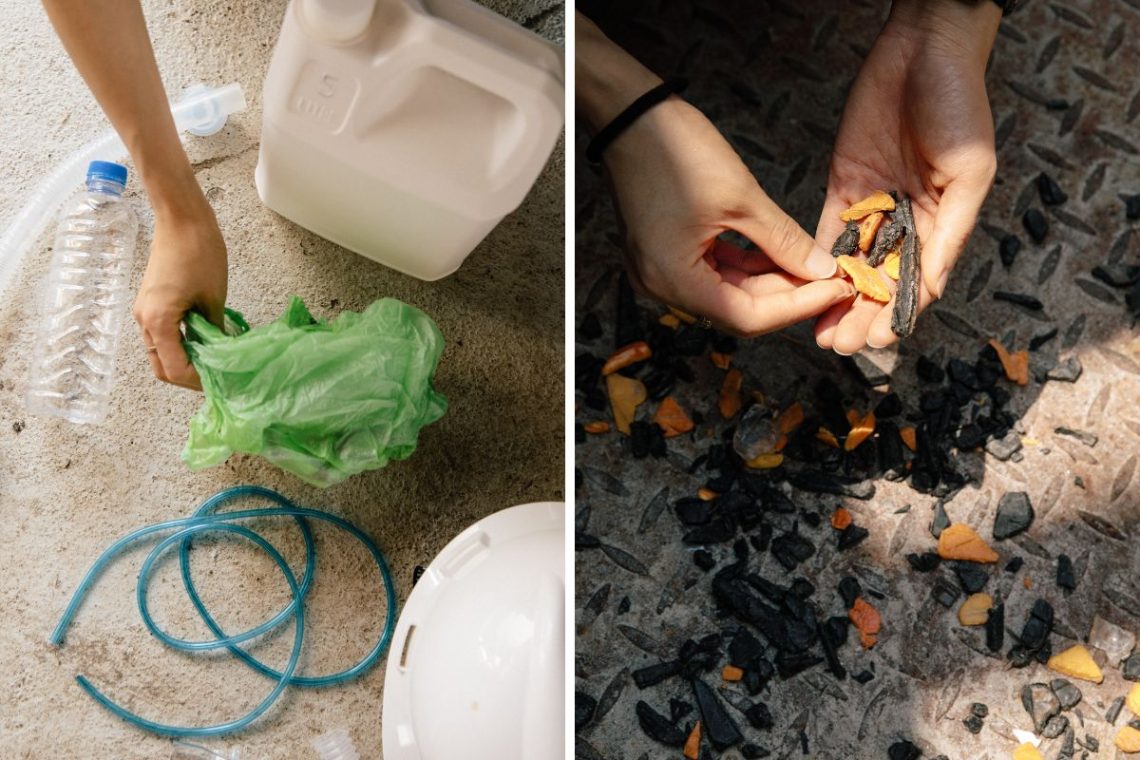
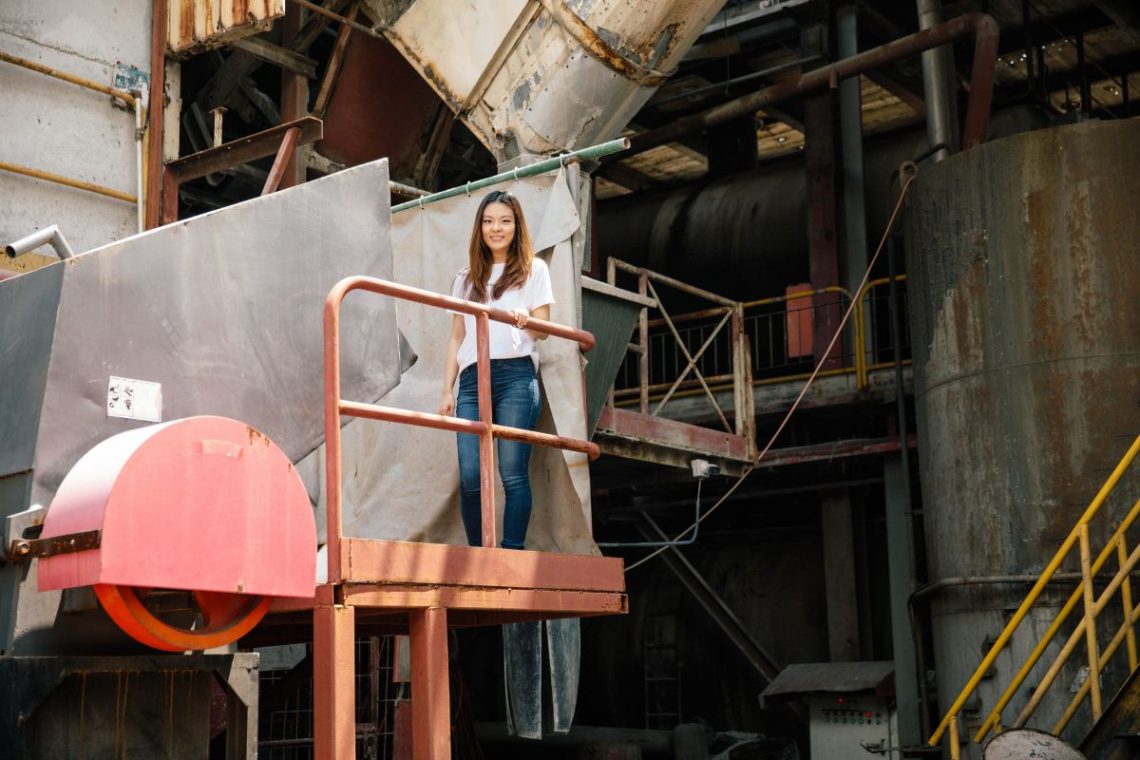
The yield from the depolymerisation process is placed into a secondary reactor where a chemical reformation occurs to create the bituminous material that is then stabilised for use as a road construction material.
Magorium has developed its own proprietary parameters for pyrolysis, which allow it to stand out from competitors by – for example – taking in contaminated and unsorted plastic.

When I say we lay a plastic-waste road, we’re not actually putting plastic onto the road. It’s just to give you a sense of where this material has been derived from. It has been converted, ultimately, into a new material.
– Oh Chu Xian
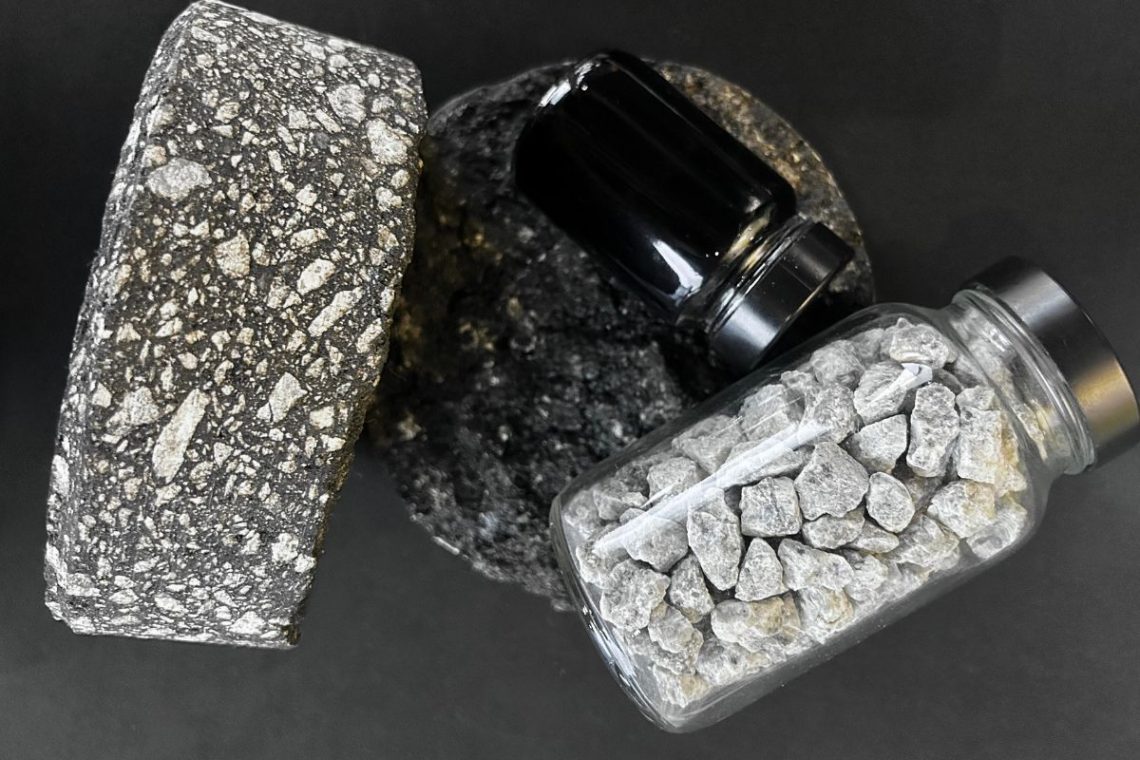
Depending on the plastic mix and the contamination level, Magorium’s NEWBitumen yield is 30-to-50%. The remainder of the output is mostly synthetic gas (syngas, a mix of hydrogen and carbon monoxide), which is cleaned and diverted back into the loop as a heating source; and biochar (a charcoal-like substance produced from the organic contaminants), which Magorium is trialling for use as a construction material. Biochar also has the potential to be upgraded into a substance for improving soil health. Any metal from the plastic waste items is recovered for reuse.
Like traditional bitumen, used NEWBitumen can be retrieved and reprocessed for repaving. It brings to mind the sustainable resonance of Singapore’s NEWater and NEWSand – which was precisely the point of the name.

Once plastic is converted into NEWBitumen, it is then kept within the construction loop to be used again and again.
– Oh Chu Xian
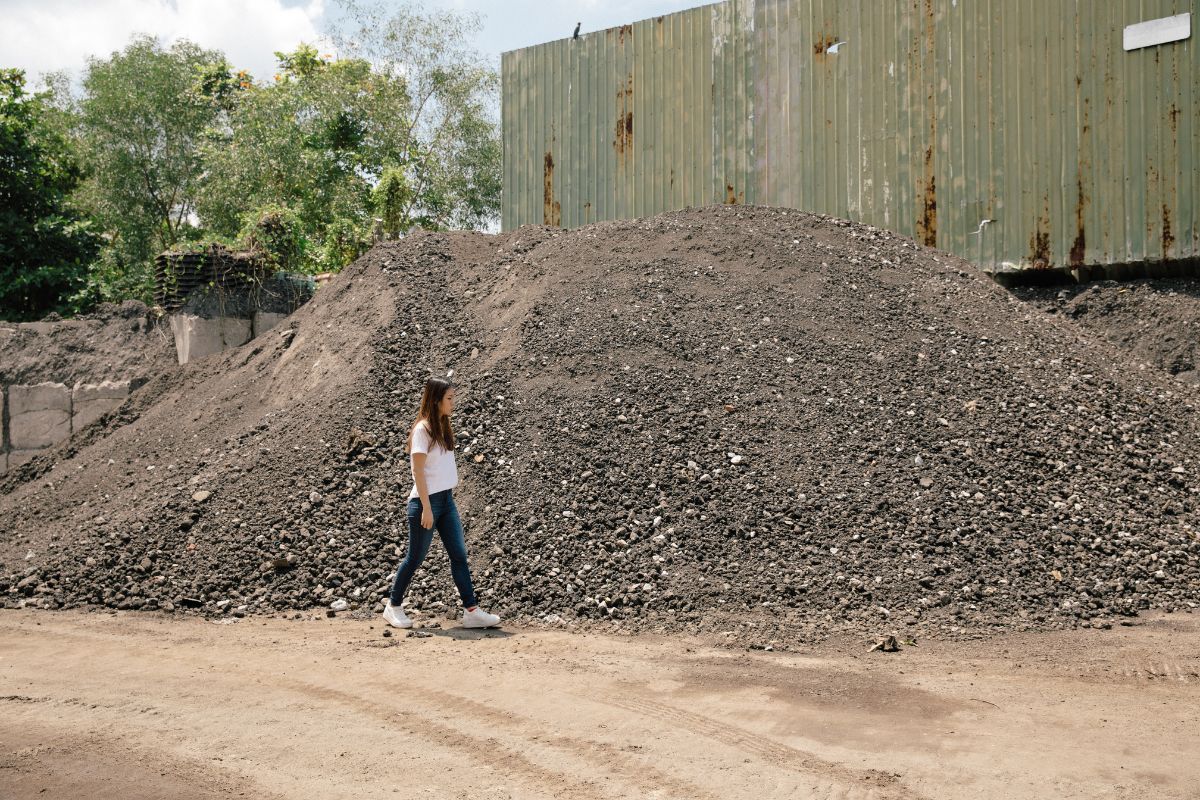
Magorium is currently crunching the numbers on the greenhouse gas emissions of the NEWBitumen production process with government research agency A*STAR (the Agency for Science, Technology, and Research). Based on extrapolations from Magorium’s lab, though, Oh offers a very preliminary estimate: a reduction of approximately 300 kg of CO2 per tonne of NEWBitumen compared to traditional bitumen production.
Designing ways to steer past resistance
Aside from the development of the Magorium business model, Oh has found the need to be especially creative with tailored marketing and communication to counter considerable pushback against the unknown. Adding to the challenge is the painful reality that people can be reluctant to pay for the ‘management’ of something that they see as rubbish.
Magorium’s first NEWBitumen road was laid on private property at a factory in Tuas. It was a low-risk environment for a first use case in comparison to the national road network, but for the factory owner, diverting from the norm presented considerable risk. Aside from a competitive price, Oh gave the warranty of repaving the road for free if it should fail within five years. Of course, it hasn’t.
Now, in many cases, Oh and her team find themselves designing waste plastic recovery systems with their partners before conversations about road paving even begin. “We assess everything together with them such that we convenience them to work with us,” she says.
That includes identifying which plastics cannot be otherwise sustainably recycled; assessing pain points in the plastic user’s recycling experience; finding solutions to operational bottlenecks in the collection of the plastics (does a hotel’s housekeeping trolley have enough collection bins, for instance); and carving out storage spaces on site. “We go in and really co-create a whole infrastructure from scratch,” she says.
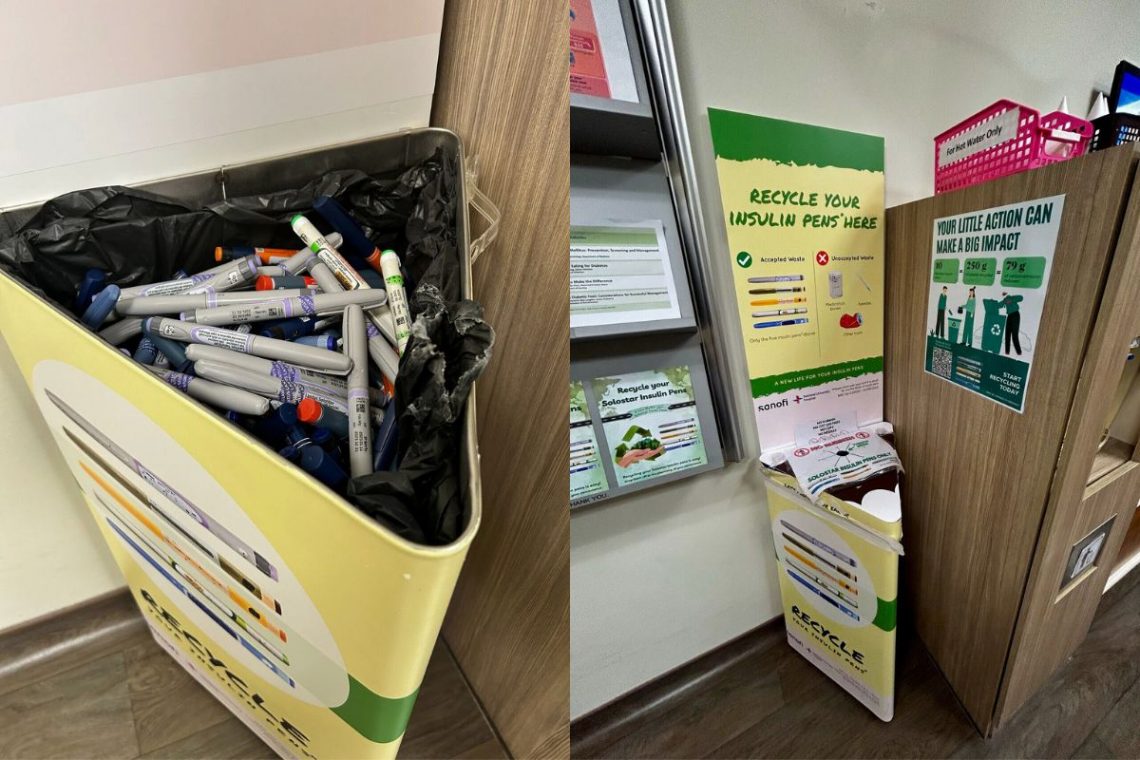
The creative problem-solving approach of redesigning systems has clearly paid off. Another nine roads and many newly forged relationships later, Oh counts Sentosa Development Corporation, CapitaLand, Keppel, the National University Hospital, the National University Health System, pharmaceutical companies (including GSK, MSD, Sanofi, and Takeda), and building materials company Gush among Magorium’s clients and partners.
She is also talking to a local education institution about the possibility of paving campus roads using the plastic waste generated by students.
There’s a question many will be begging to ask, though: If Magorium can solve our plastic waste recycling problem, do consumers have license to churn through as many single-use straws and spoons as we like? On the other hand, what if the government bans single-use plastic? Would Magorium go out of business?
Oh has smartly begun targeting sectors where the decision to use plastic is less discretionary.The medical industry, for example, which relies on single-use plastics for practical reasons such as hygiene and keeping patient costs down, has recently become a target industry for Magorium. As for a ban, Oh doesn’t see that on the horizon in the short term.

Our goal is to be a solution for industries where the use of plastic is very difficult to replace.
– Oh Chu Xian
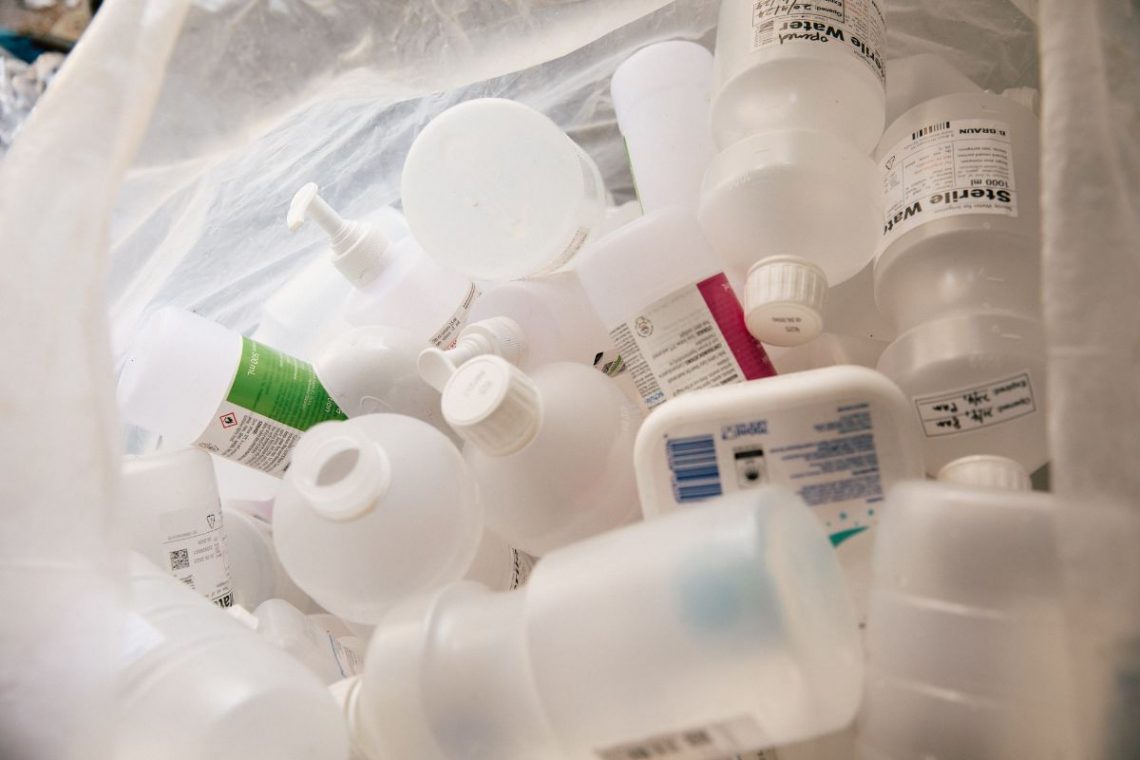
“The Singapore government has been looking towards using alternative materials. We have engaged with a lot of the agencies and they’re extremely interested in using NEWBitumen. We’re currently working on a pilot test for a public road,” says Oh.

We want to be able to increase the rate of plastic waste recycling in Singapore from 6% at least into the double digits.
– Oh Chu Xian
In the years ahead, Oh’s sights will be set on utilising plastic waste in neighbouring countries in Southeast Asia, particularly in developing areas where she hopes to support more sustainable infrastructure. No doubt, she will keep paving a better future with NEWBitumen.
Do you know someone who harnesses the power of design to improve lives? Nominate them for the “People of Design” initiative for an opportunity to be featured! Submit here.

